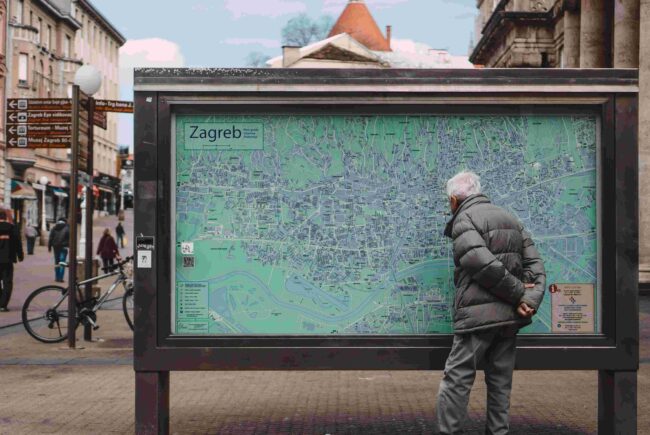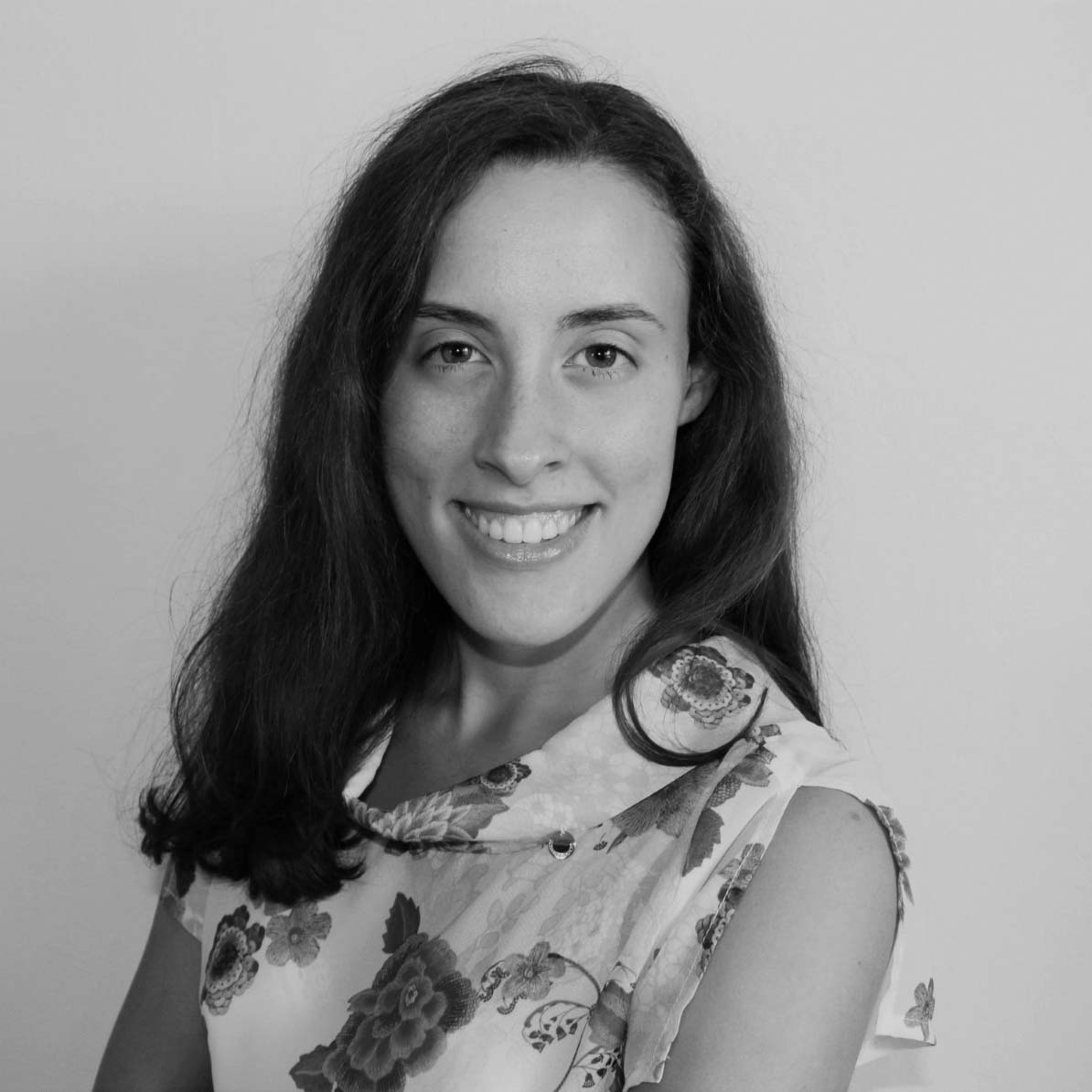In the heart of the Balkans, the echoes of the Yugoslav Wars continue to reverberate through the lives of its inhabitants. As the scars of the conflict persist and peacebuilding attempts have often proved unsuccessful, adult education could be a beacon of hope in the region.
The war in the former Yugoslavia is often referred to as one of the deadliest conflicts in Europe. The International Centre for Transitional Justice estimates that around 140,000 people died in the decade spanning from 1991 to 2001. While the break-up of Yugoslavia stands out as one of the most evident outcomes of the wars, the conflict also led to a devastating humanitarian and refugee crisis.
Over 30 years after the outbreak of the war, how does it affect the lives of people in the Balkans and shape their mindset?
We spoke to Mijo Beljo, Assistant Professor at the Department of History at the University of Zagreb, Croatia, Katarina Popović, adult education expert and Professor at the Faculty of Philosophy at the University of Belgrade, Serbia, and Adriana Zaharijević, Senior Research Fellow at the Institute for Philosophy and Social Theory at the University of Belgrade.
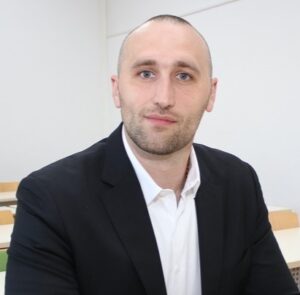
“On one hand victims have not been recognised, while on the other individuals responsible for specific incidents causing suffering have not been adequately held accountable,” says Mijo Beljo. Photo: Mijo Beljo.
Although the impact of the war on the lives of those living across the countries of the former Yugoslavia varies significantly, “the memories of war remain vivid, especially in those regions where many perished,” says Beljo, referring to Škabrnja, Croatia, where 62 civilians were killed in November 1991.
Orchestrating a war narrative to blame the neighbours
“It’s painful to think about it, but the reality is that the war still affects our lives, especially our politics,” says Popović. In many countries in the Balkans, the war is used – or “misused” as Popović reformulates – to manipulate citizens and find scapegoats for the real issues of the society.
“It’s easy to instrumentalise wars, and our governments are using the painful and frightening moments of the conflicts to draw attention away from their failures and blame the neighbouring countries,” Popović argues, referring to her own country, Serbia.
“After all,” she continues, “fear is the easiest way to govern people.” She believes that there is still a sense of insecurity about everyday life in the region, and that the government’s narrative perpetrates this feeling.
But do people in the Balkans still feel unsafe?
Beljo thinks that most people generally feel safe. “But there are exceptions. For instance, in Kosovo and Montenegro political and national issues are still significantly unresolved.” The fact that people do not fear the outbreak of the war in their country does not mean that they necessarily feel safe.
The fact that people do not fear the outbreak of war does not mean that they necessarily feel safe.
“There is a long-standing debate around whether Serbia is a violent society, but I believe the point is not whether it is safe to walk on the streets, but rather the rather the way citizens perceive the society, the government and institutions,” explains Zaharijević. She thinks that the real consequence of the war is the lost trust in institutions. “There is a widespread belief that you can be lied to and that you should not trust institutions,” she says.
One possible explanation for this is the fact that people in Serbia have not yet come to terms with the war and the past.
“The reconciliation process in our country has not even started yet. We have a negative peace in the sense that there is no war, but many aspects of the conflict have been concealed,” adds Zaharijević.
On one hand victims have not been recognised, while on the other “individuals responsible for specific incidents causing suffering have not been adequately held accountable,” notes Beljo.
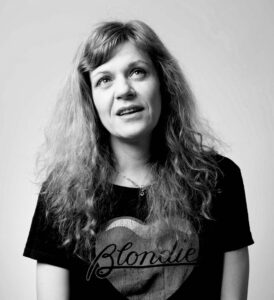
Adriana Zaharijević considers that the Women in Black, a feminist cross-border solidarity movement fighting for the peace in the region, is the most significant legacy of the war. Photo: Adriana Zaharijević.
As a silenced aspect, Zaharijević mentions the example of the Women in Black, a network of women founded in 1991 in former Yugoslavia, who worked and fought to build peace in the region.
“I believe the most significant legacy of the war is this feminist cross-border solidarity movement,” says Zaharijević, who regrets the lack of acknowledgement received by these women.
How to build peace?
“Peace is invaluable, and this perspective is shared by the majority of people today,” Beljo stresses. However, building a sustainable, lasting path to peace is easier said than done.
“The point is that peace is fragile. It’s a process, not a state, so you must constantly keep working on it,” says Popović.
She believes this is where adult education comes into action. In the early 2000s, she conducted extensive work on seminars, workshops and adult education activities with a very specific aim: to expose the governments’ narrative that aimed at creating division in the region, turning people against each other to ultimately conceal some major issues, including the widespread corruption.
“These projects were extremely successful because we managed to unite people from different countries to show them how harmful the war narrative really is and how many points they had in common,” explains Popović.
And the power of education led to incredibly positive results. “People recognised how elites used these wars to get richer and more powerful and how ordinary people – in every country – paid the price for this.”
Peace is a process, not a state, so you must constantly keep working on it.
However, adult education had and still has powerful enemies. “There really were some competing narratives, especially the nationalistic ones that became stronger and stronger after 2014. They managed to wipe out everything we had achieved,” she says. The ability of some politicians and media corporations to play on people’s emotions and fears reduced the spaces for dialogue and discussion.
In this regard, mass media plays a fundamental role in shaping the narrative surrounding war and peacebuilding, especially when it comes to young people. “They did not experience the war first-hand, and therefore rely on personal accounts, traditional education, but most importantly on mass and social media. The current media framing adds to the confusion that young people are experiencing. There is no linearity in terms of what really took place, but rather a distortion of the past,” says Zaharijević.
Mass media plays a fundamental role in shaping the narrative surrounding war and peacebuilding.
Zaharijević insists that the heated debates on traditional and modern media are often full of ideological and quasi-scientific political claims that simply diminish the atrocities committed, creating a sense of victimisation that does not, however, recognise the real victims of the war. “As a result, some young people easily buy into the government’s narrative, and the most educated ones, who could implement democracy, leave the country because of the disastrous social and economic struggles,” explains Popović.
Adult education cannot create miracles
Over 30 years after the conflict, have we learned anything from it? Popović doubts that nations are capable of learning, but believes that specific groups, including civil society, academia and adult educators, are. However, we should not be naive and neglect some fundamental aspects of education: informal and non-formal learning.
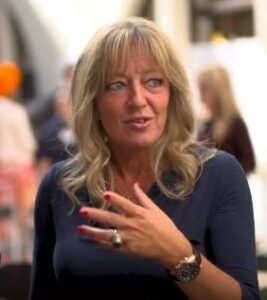
“It’s painful to think about it, but the war still affects our lives, especially our politics,” argues Katarina Popović. Photo: Katarina Popović.
“Lecturing people by sticking to the good old methods is not an effective way to achieve peace. We need more interactive strategies; we need to focus on social media platforms where people actually get their information. It’s very difficult to gain access to informal and non-formal sectors, but if we don’t do it as educators, others – namely corrupted and greedy governments – will.”
Lecturing people by sticking to the good old methods is not an effective way to achieve peace.
According to Popović, Balkan countries need more funding in adult education and support from the European Union. She underlines how, for the past 20 years, the EU has financially supported the Serbian government, which she says is taking an authoritarian turn. However, funding towards civil society has been lacking. “The money always goes to the government, which has the power to decide where it goes. And surely the government will not grant funding to projects that are critical of its actions.”
So, adult education activities have become a box-ticking routine. Many adult educators think that, despite the funding received from the Serbian education system, it is still one of the least efficient sectors.
“Funding has been provided without clear requirements for progress or specific outcomes. What we need is support to grassroots movements, cooperation and long-term projects,” Popović says.
Mijo Beljo
Mijo Beljo, born in Bosnia and Herzegovina, is an Assistant Professor at the University of Zagreb, working for the Faculty of Croatian Studies in the department of History. The focus of his research is on the period of the “Homeland War” in Croatia and Bosnia and Herzegovina (1991-95).
Katarina Popović
Katarina Popović is Professor at the Department for Andragogy, Faculty of Philosophy at the University of Belgrade and Secretary General of ICAE (International Council for Adult Education), visiting professor for adult education at several European universities, vice-president of International Society of Comparative Adult Education and president of the Serbian Adult Education Society.
Adriana Zaharijević
Adriana Zaharijević is a Senior Research Fellow at the University of Belgrade, Institute for Philosophy and Social Theory. Her work combines political philosophy, gender studies and social history. She has authored four books, the latest being Judith Butler and Politics (Edinburgh University Press, 2023), and has published articles in Signs: Journal of Women in Culture and Society, East European Politics and Societies and Cultures and European Journal of Women’s Studies.

